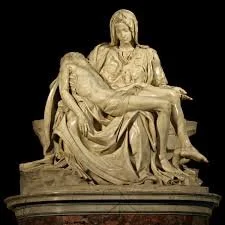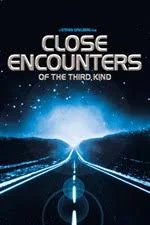In his homily on today’s gospel, the priest missed the point. He lobbed a homily at the sparse congregation from the safety of the ambo but it did not detonate. The gospel was about the smallness of our thoughts compared to the largeness of God’s. The priest did not get it.
The gospel was about Matthew 21:33-43 (Bible Gateway). When the husbandmen kills the heir, we are asked, “ When the lord therefore of the vineyard cometh, what will he do unto those husbandmen?” We respond, “He will miserably destroy those wicked men, and will let out his vineyard unto other husbandmen, which shall render him the fruits in their seasons.”
This, however, is not how it happened. We expressed our limited understanding. In the parable, we only saw a need for revenge, retaliation and retribution. God, however, saw a need for something more. God was not interested in giving us a lesson in justice as the children of Adam and Eve understand it.
“For my thoughts are not your thoughts,
neither are your ways my ways,”
declares the Lord.
“As the heavens are higher than the earth,
so are my ways higher than your ways
and my thoughts than your thoughts”Isaiah 55:8-9 (Bible Gateway)
To the surprise of the children of Adam and Eve, instead of killing us, God forgave us (Luke 23:34). Instead of releasing the three-headed monster of revenge, retaliation and retribution into the Valley of Tears, God released the Angel of Forgiveness.
We tortured and killed the God who loves us. We made the God who loves us suffer and die. Yet, he did not stay dead and he did not stop loving us. He emerged from the dead still alive and still in love with us. His love for us survived the evil that we did to him. That he emerged from the dead still alive revealed to us his power. Nobody emerges from the dead. He did. That he emerged from the dead still in love with us, however, revealed to us something more significant about divinity than power. Our conception of divinity as power is incomplete - flawed. Divinity is also love - a mysteriously intransigent, inexplicably persistent and radically stubborn love (Isaiah 55:8-9) (Psalm 8:4-8) (Lamentations 3:22-23) .
The priest missed the point. Jesus, however, did not. By forgiving us for the evil that we did to him, Jesus upgraded our understanding of God. He bumped it up a level or two. He gave us the best approximation of God in the lopsided transaction that took place on the road from the Crucifixion to the Resurrection - a high fidelity representation of the reality of God.
The evil that we did to him opened the floodgates of forgiveness. Forgiveness flowed through his bloody wounds and into the Valley of Tears to dilute its toxicity in the same way that sugar cubes dilute the bitterness of a cup of bad coffee.
The greater was the evil that we did to him, the more astonishing is his forgiveness of us and the greater our curiosity becomes in the God who loves us.
What is the difference between a priest who lobs homilies at the congregation from the safety of an ambo and Jesus?
Jesus did not stay on the sidelines in safety away from the fray. He led by example. Unlike the typical priest, Jesus exited the sidelines and entered the "game". He joined us in the scrum at the line of scrimmage in the war against evil armed only with the monkey wrench of love. Jesus himself threw the monkey wrench of love into the cycle of evil on the road from the Crucifixion to the Resurrection to disrupt it. He donned the jet pack and flew to show us that we, too, can fly. What a crazy daredevil this Jesus was! Jesus hung from his Cross to teach us how to hang from our crosses. When you hang as Jesus hung, cling as Jesus clung, love as Jesus loved. Hold tight and refuse to let go of love, sufferings invincible foe. Only love kicks sufferings a@@.
Feedback is the flint that sharpens the blade
Feedback is the flint that sharpens the blade. Because the Church is insensitive to feedback, it has become a dull blade. A dull blade does not cut. The Church does not know how to welcome or process feedback.
It has no formal structures to accept and learn from feedback. None.
The Church is not set up to listen. It has deaf ears. It props up its ideas with authority. It fears that its ideas cannot compete and survive in the marketplace of ideas. Yet, in modernity, the children of Adam and Eve hold the opinion that
"Unthinking respect for authority is the greatest enemy of the truth" (Albert Einstein).
In an age where the children of Adam and Eve read, write and think for themselves, the Church needs to adjust its behavior. In modernity, the Church needs to allow its ideas to be tested by feedback to prove their worth.
The greatest obstacle blocking us from participating in the new Exodus is our superficial understanding of God
What is the Good News of Great Joy ? Can you give us a synopsis of it? Do you have the words? Is the answer on the tip of your tongue? Do you carry the Good News of Great Joy with you in your pocket always and everywhere? Or is your pocket empty?
Download a high fidelity representation of the reality of God from the proper context. The only context that gives us a a high fidelity representation of the reality of God is the road from the Crucifixion to the Resurrection. There we bear witness to the story of our salvation. The story of our salvation goes like this: We tortured and killed the God who loves us. He forgave us. Wow!
Whose job is it to rebuild the gardens of the new Eden here and now in the Valley of Tears? We think its God’s job. God thinks its our job. There is a difference in opinions. God’s prevails.
What is the detail of consequence? If the detail about God were not important, Jesus would not have released it into the Valley of Tears on the road from the Crucifixion to the Resurrection.
Christianity is a treasure map for treasure hunters engaged in a treasure hunt. A cross marks the spot of the treasure . Grab your shovel. Make your way to the road from the Crucifixion to the Resurrection. There, stake your claim. Dig up the treasure for yourself. Make yourself rich!
The Mass is an echo of the revelation that Jesus released into the Valley of Tears on the road from the Crucifixion to the Resurrection. We took from him that which did not belong to us, his life. He gave to us that which we did not deserve, forgiveness. Upon this unjust transaction between creatures and creator, the entire edifice of Christianity rests. The Mass propagates across time and space this paradigm shifting revelation about the nature of God.
Where did the closest, most informative encounter between us and our God take place? What did we learn from it?
Which is more important? the Mass or the road from the Crucifixion to the Resurrection? Why?
Jesus and the children of Adam and Eve cooperated to build the road from the Crucifixion to the Resurrection. Our contribution was torture, suffering, killing and death. His contribution was forgiveness.
Don’t tell us what you found; show us where to look. Let us make the discovery for ourselves. Let us come to our own conclusion. Where do we go to find the raw materials with which to fill the gap in our understanding of God? There is only one place to go. There is only repository of the treasure of Christianity. Go to the road from the Crucifixion to the Resurrection. Jesus deposited a high fidelity representation of the reality of God on the road from the Crucifixion to the Resurrection. There, forage for an understanding of God.
Don’t tell us what you found. Just show us where to look. Let us enjoy the surprise of discovery. Let us reason from premise to conclusion for ourselves.
The Autobiography of God was written on the road from the Crucifixion to the Resurrection.
Are you too remote from God to hear what he has to say to you? Come closer. Draw near. Put yourself in a position where you can hear God. Jesus released the good news of great joy into the Valley of Tears on the road from the Crucifixion to the Resurrection. The road from the Crucifixion to the Resurrection is the platform from which Jesus gave us a high fidelity representation of the reality of God. On the road from the Crucifixion to the Resurrection, Jesus illuminated the darkness of our understanding of God in a glorious burst of epiphany. The wise anchor their understanding of God to the dramatic demonstration of divinity that took place on the road from the Crucifixion to the Resurrection. However, we cannot hear the revelation unless we go to the road from the Crucifixion to the Resurrection and climb the tree as Zacchaeus did (Luke 19:1-10). What tree must we climb to witness the story of divinity that unfolded on the road from the Crucifixion to the Resurrection? God himself planted the tree for us to climb. The tree that we need to climb to put ourselves in position to hear the good news of great joy is the Cross (1 Corinthians 1:17). Climb the Cross. From the Cross, witness the story of divinity that unfolded on the road from the Crucifixion to the Resurrection. Testify to the truth. Save the world. In the process of saving the world, you save yourself. Don’t delay. Climb the tree. Have you climbed the Cross in the manner of Zacchaeus?
Can you pinpoint the location where Jesus deposited the answer to the question, ‘Who is God?”?


































